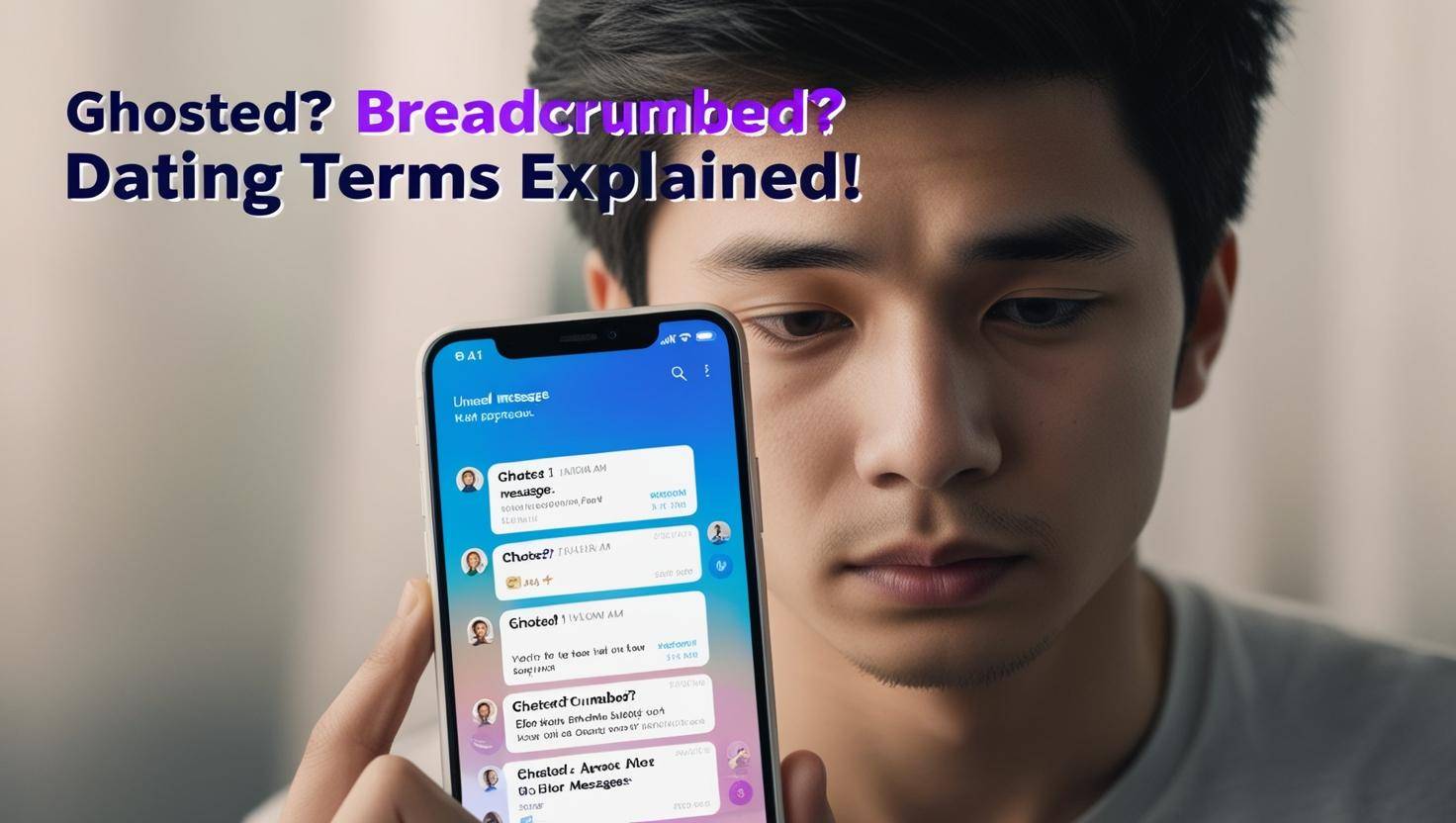Dating has changed a lot over the years. Today, people use many new words to describe different dating behaviors. If you are confused by terms like breadcrumbing, ghosting, or benching, don’t worry—you are not alone!
In this article, we will explain the most popular modern dating terms in simple words so that even a 10-year-old can understand. Whether you are dating or just curious about how people talk about relationships today, this guide will help you.
1. What Is Modern Dating?
Before we dive into the terms, let’s first understand what modern dating is.
Modern dating is the way people start relationships today, mostly using technology like social media and dating apps (such as Tinder and Bumble). In the past, people met at work, in school, or through family and friends. But now, many people find dates online.
While technology makes dating easier, it also brings new challenges. Many people experience confusing behaviors that can hurt their feelings. That’s why new words have been created to describe these situations.
2. Popular Modern Dating Terms Explained
Now, let’s break down some of the most common dating terms and what they mean.
1. Ghosting
Ghosting is when someone you are talking to suddenly stops replying and disappears like a ghost. They ignore your messages and never explain why they left.
Example:
Emma and Jake were chatting every day. One day, Jake stopped answering Emma’s texts and calls. Emma felt sad and confused because she didn’t know what happened. Jake had "ghosted" her.
A sad person looking at their phone, waiting for a reply.
2. Breadcrumbing
Breadcrumbing is when someone gives you small bits of attention (like leaving breadcrumbs) but never really commits to you. They might send flirty texts once in a while, but they don’t want a serious relationship.
Example:
Alex texts Mia once a week, saying, "I miss you," but never asks to meet in person. Mia keeps hoping Alex will want a relationship, but he is just "breadcrumbing" her.
A person looking happy after receiving a text but later feeling disappointed.
3. Benching
Benching is when someone keeps you as an option while dating other people. It’s like keeping a player on the bench in a sports game—you are not their first choice, but they don’t want to lose you completely.
Example:
Sarah really likes David, but David only messages her when he is bored. He never asks her out on a real date. David is "benching" Sarah.
4. Catfishing
Catfishing is when someone pretends to be someone else online by using fake photos and fake information.
Example:
Liam thought he was talking to a beautiful girl named Sophie online. But when they met in real life, he found out that Sophie was actually a different person. Liam had been "catfished."
5. Love Bombing
Love bombing is when someone gives too much love and attention at the beginning of a relationship to make you feel special, but later they change and may become controlling.
Example:
Mike sent Lily flowers every day and said, "I love you" after just one week. But after a month, he started ignoring her. Mike was "love bombing" Lily.
A person receiving too many gifts and messages too quickly.
6. Zombieing
Zombieing is when someone who ghosted you comes back as if nothing happened. It’s like they "rise from the dead" and want to talk again.
Example:
Tom ghosted Jenny for three months. Suddenly, he texted, "Hey, how have you been?" Jenny was shocked—Tom was "zombieing" her.
7. Orbiting
Orbiting is when someone stops talking to you but still watches your social media. They may not reply to your messages, but they will like your posts or view your stories.
Example:
Emma noticed that even though Jack never texted her back, he still liked all her Instagram pictures. Jack was "orbiting" Emma.
8. Slow Fading
Slow fading is when someone gradually disappears instead of ghosting suddenly. They reply less and less until they stop completely.
Example:
At first, Chris texted Anna every day. Then he started replying every two days, then once a week, and finally not at all. Chris was "slow fading."
9. Cushioning
Cushioning is when someone in a relationship flirts with other people just in case their current relationship ends.
Example:
Lucy noticed that her boyfriend, Ryan, was texting other girls. When she asked, he said they were "just friends." But Ryan was "cushioning" in case their relationship failed.
10. Stashing
Stashing is when someone keeps their partner a secret and never introduces them to family and friends.
Example:
Samantha had been dating Tom for six months, but Tom never introduced her to his friends. Samantha felt like Tom was "stashing" her.
3. Why Do People Do These Things?
People use these dating behaviors for many reasons. Sometimes, they are not serious about relationships, or they are afraid of commitment. Others may just be playing games or don’t know how to communicate properly.
If someone treats you this way, remember: it’s not your fault. You deserve respect and honesty in any relationship.
4. How to Protect Yourself in Modern Dating
If you are dating, here are some tips to avoid getting hurt:
✅ Look for Consistency – If someone truly likes you, they will communicate regularly.
✅ Trust Actions, Not Just Words – People can say nice things, but their actions show their real intentions.
✅ Don’t Chase People Who Ignore You – If someone ghosts or benches you, move on!
✅ Be Honest About What You Want – If you want a serious relationship, let the other person know early.
✅ Stay Safe Online – Don’t trust someone you’ve never met in person. They might be catfishing.
5. Final Thoughts
Modern dating can be confusing, but understanding these terms can help you recognize when someone is not treating you well. If you ever experience ghosting, breadcrumbing, or any other tricky dating behavior, remember: you deserve better!
Have you ever experienced any of these dating terms? Share your thoughts in the comments!


